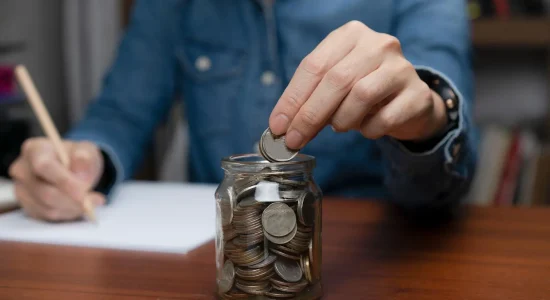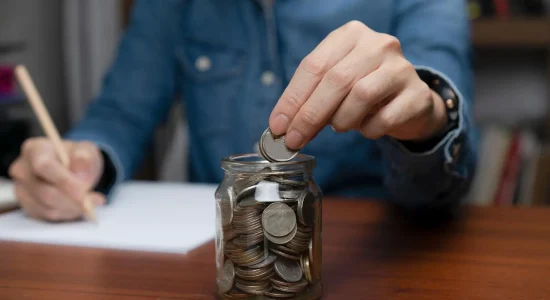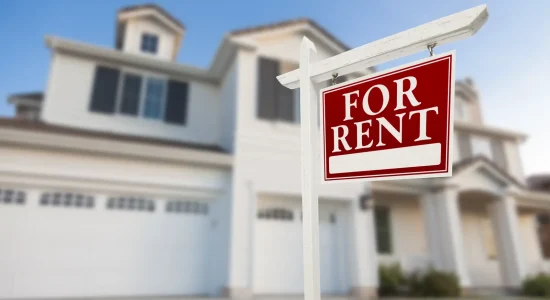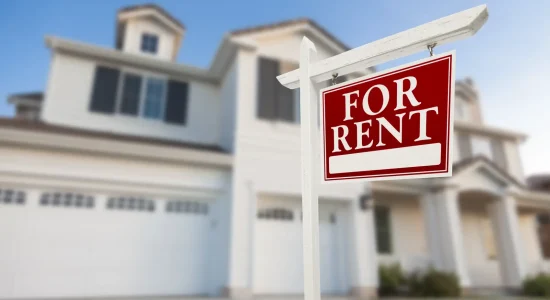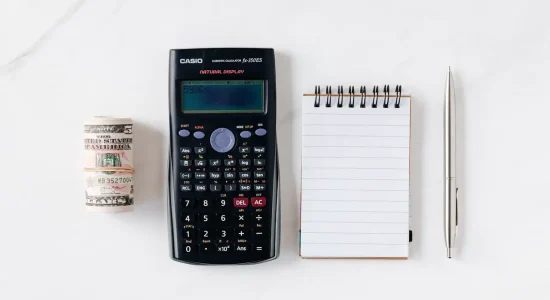Financial Minimalism is a new buzzword in the personal finance community. Many financial bloggers and podcasters have been talking about Financial Minimalism for a while now.
Here are the 10 easy ways to practice financial minimalism:
- Monitor Your Spending Habits
- Get Rid of Unnecessary Expenses
- Earn Without Spending
- Reduce Your Credit Card Usage
- Spend On Yourself First
- Know What You Are Buying
- Lessen Your Debt
- Don’t Fear Investing — Embrace It
- Maintain a Balanced Style Of Life
- Devise and Maintain Your Own Living Style
In my opinion, seeking the answer to ‘what is financial minimalism’ is among the approaches to living the life you want while saving money year after year.
In this article, I’ll explain the dictionary definition of ‘Financial Minimalism’ and how you can achieve it to live a stress-free life.
Read on the find out!
What Is Financial Minimalism?
Financial Minimalism means only buying or spending on the things that add value to your life. Being a financial minimalist, you enjoy having a balanced lifestyle. One can become a financial minimalist with accurate budgeting and tracking their everyday spending.
What is Financial minimalism? Let me further break it down for understanding.
Minimalism entails making the most of a limited amount of resources. Who are minimalists? Minimalists are people that declutter their belongings in order to spend less time managing and maintaining them.
This is a concept that has been increasingly popular in recent years. Financial minimalism entails living “simply but not cheaply,” as well as bringing your spending under control so you can pay off debt and live within your means.
It’s about focusing on what’s actually important in life by living with less. You may pick this lifestyle to spend more time with the people you care about or to make a difference in the world.
Financial minimalism can benefit your life in a variety of ways (including your bank account). Today, I will look at various methods for achieving financial minimalism while still saving money.
Why Is Financial Minimalism Important?
Financial Minimalism is important in order to be in control of your finances and plan for the future. It’s critical to practice financial minimalism to focus on bigger goals by buying less and buying better.
As you are aware, financial stress can have a negative impact on your health.
In order to counter this, you may be on the right track to cutting your expenses and living within your means, if you get your spending under control and reduce your debt – whether it’s from credit cards or loans.
It’s more than just having your expenditures under control when you practice financial minimalism.
In fact, it is also about minimizing the number of things, you believe, you need to live “the good life”, so you can focus more on what matters to you rather than material possessions.
Your health, relationships, passions, and contributions are all far more valuable than any amount of money. Trust me on this!
10 Rules to Understand Financial Minimalism
There are several ways to stand among financial minimalists. A few ideas that might work for you are listed below:
#1 Monitor Your Spending Habits

One of the most effective strategies to attain financial success is to live a minimalist lifestyle. If you have started living such a lifestyle, you might be ready to move on to financial minimalism.
Financial minimalists are those that streamline their lives by spending less time managing their money and investments.
The best thing I did, when I initially started practicing minimalism, was to start documenting where my income was headed. It took me about six months of meticulously jotting down every penny I spent until it became second nature to me.
The fact that I was able to track my spending was really beneficial since it allowed me to see where all of my money was going.
Ultimately, knowing where my money was going provided me with the insight and capacity to make smarter spending decisions, even if it felt like too much to do at times.
The most intriguing thing I noticed after a year of analyzing my spending was that approximately 80% of my expenses were routine ones.
I was able to cut out a lot of unneeded spending and save more money every month by monitoring my greatest money leakages.
#2 Get Rid of Unnecessary Expenses
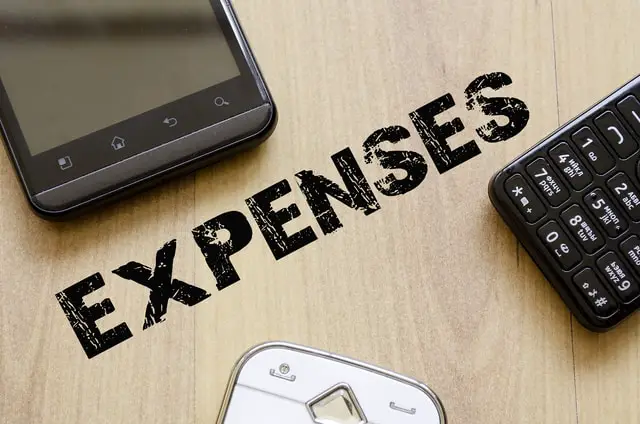
People are always looking for methods to save money and minimize costs, but it ends up being difficult when you have regular responsibilities to pay off.
Most people are unaware of how much money they’re wasting on non-essential items until they compare the figures.
Cutting away all of the superfluous expenses in my life was another technique I took when studying how to be a financial minimalist.
This is something you and I can do at any time, and not just when I am trying to be more frugal with my money.
It’s all too easy to lose sight of what truly matters in your life. You get caught up in the assumption that you require all of these material possessions to be happy, while in reality, happiness is only ever fleeting.
How I Overcame My Unnecessary Expenses
I found out (through lots of trials) that there are numerous behaviors and expenditures that add no value to my life.
Among them was a habit that instead of eating out, I reduced my subscriptions and began carrying packed lunches to work.
I even cut the cord of my cable! And it turns out I don’t miss it at all, now that I have realized how infrequently I used it.
It also reminded me that if you know where to go, you can get lots of free entertainment on YouTube or elsewhere online, and after a while, you won’t miss what you thought you couldn’t live without. Simple, Human, Nature!
Other unneeded expenses could include your gym membership or downgrading your phone plan to a more basic version. Remember to add any subscriptions or memberships that you pay for but rarely use!
#3 Earn Without Spending

Sounds weird? Well, reserve your judgment till you read it over.
After lots of research and twinkling over the web, I have learned how to make money online in a variety of ways over the years, including blogging, content writing, and Etsy, to mention a few of them.
Working from home has become something I’m entirely comfortable with as a result of making money online, and it can provide amazing financial benefits as well as opportunities for self-expression.
This is a different method to work toward financial minimalism, and it’s a lot more sustainable than spending all of your money on retail therapy every month.
#4 Reduce Your Credit Card Usage

Now that you have digested a few simple rules, let’s move on to some sticky ones: your credit cards, for instance.
Financial minimalism does not include carrying a slew of credit cards in your wallet. Instead, as a minimalist, just pick one or two worthy options.
Those who make the most of their credit card benefits may find such minimalistic approaches to be contradictory:
“Just one or two credit cards?” the credit card churners shout in anguish. That is absurd! What about card points? What about the benefits?
Hmm. While having (and actively using) credit cards can provide you with fantastic incentives, monitoring those cards and rewards can be time-consuming.
If you don’t meet the spending conditions, you won’t get the prize. Worse, you might have to pay an annual fee for a card that doesn’t offer any benefits.
Cancel Extra Credit Cards
You are also more vulnerable to identity theft and fraudulent transactions. Instead of carrying a wallet full of cards, pick one or two that offer the best cashback or travel perks.
While cashback credit cards are convenient, keeping track of which cards you use for shopping and which for travel may be a hassle.
So choose minimal credit cards that offer all of the bonuses and features you require.
Place your other credit cards in a secure place and cease using them if they don’t have yearly fees.
Consider closing the account if they impose a fee. It’s important to keep in mind that canceling too many credit cards at once will hurt your credit score.
Before canceling your cards, make sure to spend your points or bonuses, and if you maintain your cards, don’t allow the points to stay in your accounts for too long.
Companies that issue credit cards have the ability to amend their restrictions at any time, which might make it a burden later on.
#5 Spend On Yourself First

One thing I’ve discovered from keeping track of my expenses is that I often spend on myself last.
Before you remember to transfer anything into your savings accounts, you might spend a week’s worth of pay on going out to dinner, buying a few new outfits, and other frivolous things.
If you’re learning how to become financially minimalist, this is exactly what you don’t want to do. Paying yourself first is a kind way to treat yourself.
Make it a habit, especially if you have a habit to forget about the money in your savings account that may be growing.
Financial minimalism involves selecting what gives value to your life on a daily basis, not merely giving up all of your money or refusing to buy anything.
Learning to be a financial minimalist, even if you start small, can transform your life.
#6 Know What You Are Buying

Being careful of your purchases is another important aspect of financial minimalism. This took me a long time to accept since it brought me to the realization that I had squandered a lot of money on some very stupid items.
Once I acknowledged this fact for myself, it was much easier to discover alternatives to these wasteful expenses.
Instead of spending money on lunch at work every day, I would bring my own meals from home or pack some snacks so that I wouldn’t be tempted by an expensive take-out near my office.
#7 Lessen Your Debt
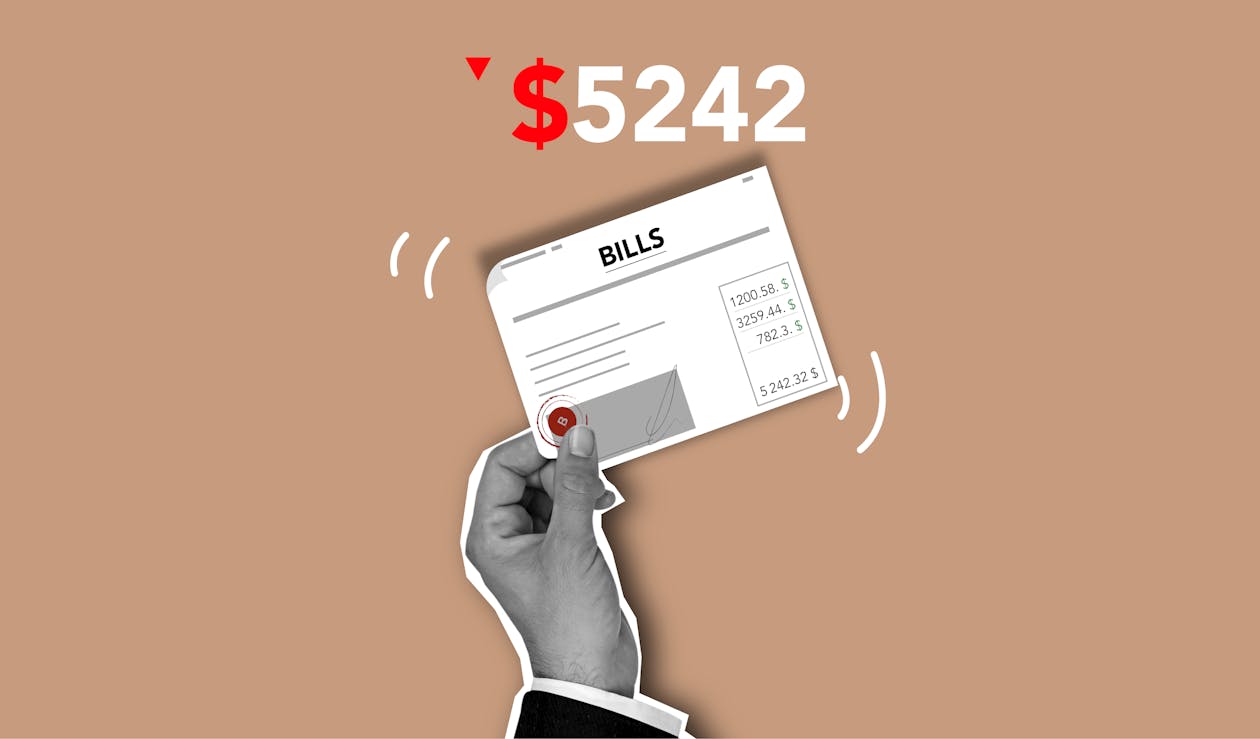
If one of your goals is to reduce your debt, then having no debt and living within your means are both behaviors that go along with financial minimalism.
It’s a lot easier to pay off debts if you don’t spend more money than you earn because money isn’t wasted on frivolous things every month.
I’ve said before that I was in a lot of debt before I started my minimalism path, both credit card debt and loans.
It wasn’t until I confronted the realities that I realized what steps needed to be taken to lessen it. And now that I’ve paid off all of my loans, I can breathe a little easier about my finances.
#8 Don’t Fear Investing — Embrace It

Don’t believe that investing is something you can only do until you’ve amassed a substantial sum of money. The more you invest when you’re young, the less you’ll need to meet your retirement goals, just like everything else.
One of the best investments you can make is in yourselves by learning new talents or working on enhancing the ones you already have.
It is never late or too early to begin! You never know what opportunities might present themselves if you’re prepared to invest some time and effort into self-education.
Aside from investing in yourself, another method to begin minimalistic investing is to make monthly payments to a retirement account. Or, you can invest in low-cost funds that will help you attain your goals sooner. It all adds up in the end!
However, there are some principles to follow before you begin investing:
- You must not be in debt.
- Your family must have at least 6 months’ worth of living expenditures in your savings account (for bad days).
- You must not require funds you invest for the next 5-10 years. (meaning it is not a short-term investment opportunity)
#9 Maintain a Balanced Style Of Life

One of the simplest ways to blow through your income quickly is to spend it on costly parties and going out with friends. Surely, not among the wisest choices to make if you’re aiming for a healthy lifestyle.
It may seem like a pleasure to spend money at first, but how do you feel after the glow fades and you’re still broke?
Work towards a better work-life balance if you want to attain financial simplicity. Yes, you are not obligated to keep up with something if it no longer brings you joy.
But perhaps you can find activities other than partying that will not cost you a fortune and will help you relax at the end of a long day.
I cut off my dine-out expenses and started to eat home-prepared food to maintain a healthy and minimalistic lifestyle.
#10 Devise and Maintain Your Own Living Style

If you’re in debt, living paycheck to paycheck, or just starting out on your minimalist journey, it’s important to remember that everyone’s path is unique.
After seeing tons of paid commercials online, it may appear that people have achieved financial success suddenly, but what they don’t reveal are the genuine stories out there.
Everyone has a unique narrative to tell, as well as lessons acquired along the road. The idea is to take what you’ve learned from them and apply it to your own work.
Having a financial role model isn’t always the best solution. Because no two roads are alike, everyone must forge their own way. The sooner you realize this, the sooner you’ll be on your way to achieving your objectives!
Conclusion
Financial minimalism can be achieved in a variety of ways. Which one(s) do you believe will work best for you? What’s more, which ones can you start with right now?
Examine the ideas I have discussed and consider what is feasible in your particular scenario. You’ll be better off if you start making changes that lead you toward this path as soon as possible!
Financial minimalism might be a tricky undertaking, but I hope these tips have been useful in getting you thinking about this line.



